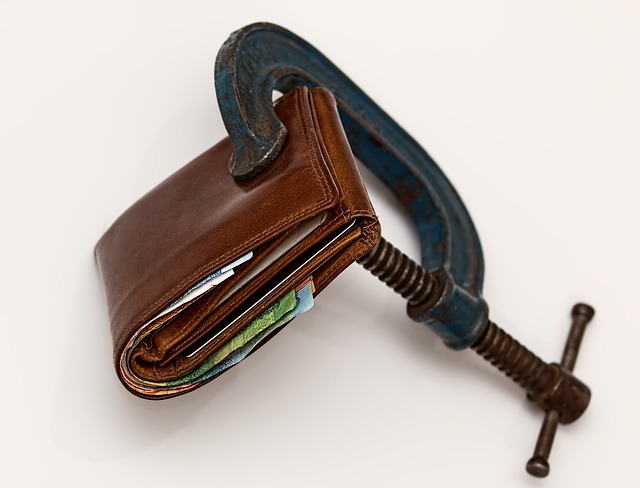Understanding Bank Accounts: Your Gateway to Financial Management
Bank accounts are essential tools for managing your money, savings, and overall financial health. Whether you're just starting your financial journey or looking to optimize your banking strategy, understanding the ins and outs of bank accounts is crucial. This article will explore the various types of bank accounts, their features, and how they can help you achieve your financial goals.

-
Savings accounts: Designed to help you save money, these accounts usually offer higher interest rates than checking accounts. They’re ideal for building emergency funds or saving for short-term goals.
-
Money market accounts: These hybrid accounts combine features of both checking and savings accounts, often offering higher interest rates than traditional savings accounts while still providing some check-writing capabilities.
-
Certificates of Deposit (CDs): CDs are time-bound savings accounts that offer higher interest rates in exchange for leaving your money untouched for a specified period, typically ranging from a few months to several years.
How do bank accounts contribute to your financial health?
Bank accounts play a crucial role in maintaining and improving your financial well-being:
-
Safety: Unlike keeping cash at home, bank accounts offer protection for your money through federal insurance (FDIC in the US) up to certain limits.
-
Budgeting: By providing detailed transaction records, bank accounts help you track your spending and stick to a budget.
-
Savings growth: Interest-bearing accounts like savings accounts and CDs help your money grow over time, albeit modestly in most cases.
-
Financial credibility: Having a stable bank account history can improve your financial reputation, which may be beneficial when applying for loans or credit cards.
-
Convenience: Modern banking features like online and mobile banking, automatic bill payments, and direct deposits make managing your finances easier and more efficient.
What features should you look for in a bank account?
When choosing a bank account, consider the following features:
-
Low or no fees: Look for accounts with minimal monthly maintenance fees, ATM fees, and transaction fees.
-
High interest rates: For savings accounts, compare annual percentage yields (APY) to find the best returns on your deposits.
-
Online and mobile banking: Ensure the bank offers user-friendly digital tools for managing your account remotely.
-
ATM network: Check the availability and accessibility of ATMs, especially if you frequently need cash.
-
Minimum balance requirements: Be aware of any minimum balance requirements to avoid fees or account closures.
-
Additional services: Some banks offer valuable extras like budgeting tools, financial advice, or rewards programs.
How can bank accounts help with tax management?
Bank accounts can play a significant role in managing your taxes:
-
Record keeping: Detailed account statements provide essential documentation for tax purposes, helping you track income, deductions, and expenses.
-
Interest reporting: Banks report interest earned on your accounts to tax authorities, simplifying the process of declaring this income on your tax returns.
-
Tax-advantaged accounts: Some banks offer specialized accounts like Individual Retirement Accounts (IRAs) that can provide tax benefits for retirement savings.
-
Business accounts: For entrepreneurs and freelancers, separate business bank accounts help clearly distinguish between personal and business finances for tax reporting.
What are the pros and cons of online-only bank accounts?
Online-only banks have gained popularity in recent years. Here’s a comparison of their advantages and disadvantages:
| Aspect | Pros | Cons |
|---|---|---|
| Interest Rates | Generally higher rates due to lower overhead costs | Rates may fluctuate more frequently |
| Fees | Often lower fees or no fees for basic services | May charge for services like paper statements or excessive transactions |
| Accessibility | 24/7 access through mobile and online platforms | Limited or no in-person branch services |
| ATM Network | Usually offer large networks of fee-free ATMs | Physical cash deposits may be challenging |
| Customer Service | Often provide 24/7 customer support | Lack of face-to-face interaction for complex issues |
Prices, rates, or cost estimates mentioned in this article are based on the latest available information but may change over time. Independent research is advised before making financial decisions.
How can you maximize the benefits of your bank accounts?
To get the most out of your bank accounts:
-
Regularly review your accounts: Check for unnecessary fees, compare interest rates, and ensure your accounts still meet your needs.
-
Set up automatic savings: Use automatic transfers to consistently build your savings without effort.
-
Take advantage of technology: Utilize mobile banking apps and online tools to monitor your accounts, set alerts, and manage your money more effectively.
-
Diversify your accounts: Consider using multiple account types to optimize your money management, such as pairing a high-yield savings account with a convenient checking account.
-
Stay informed: Keep up with changes in banking regulations, new account offerings, and financial best practices to make informed decisions about your banking strategy.
By understanding the various aspects of bank accounts and how they fit into your overall financial picture, you can make smarter choices about where to keep your money and how to use banking services to your advantage. Remember that your banking needs may change over time, so it’s essential to periodically reassess your accounts and make adjustments as necessary to support your evolving financial goals.






